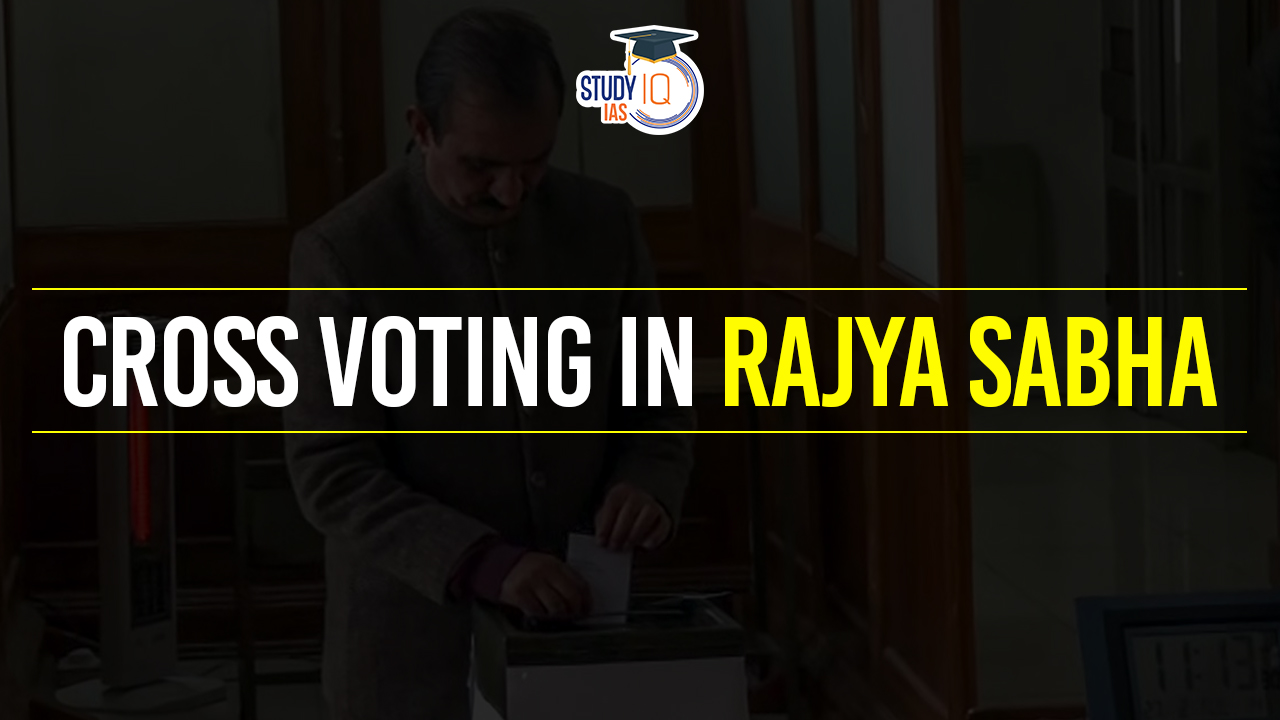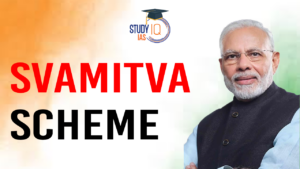Table of Contents
Context: MLAs from Uttar Pradesh, Himachal Pradesh, and Karnataka engaged in cross-voting during the Rajya Sabha elections, casting doubt on the integrity of the electoral process.
What is Cross Voting?
Cross-voting in the Rajya Sabha refers to a situation where members of a political party or alliance vote against the official party line or whip issued by their party leadership. Cross voting can happen due to various reasons, including ideological differences, personal beliefs, regional interests, or dissatisfaction with party leadership. It can have significant implications for the outcome of a vote, particularly if it affects the majority or minority status of a particular side on an issue.
Since members of the Rajya Sabha are elected by the elected members of the Legislative Assembly of States and Union territories, they may not always strictly follow the party whip issued by their respective parties. This is because members of the Rajya Sabha represent states and union territories rather than constituencies, and their allegiance may sometimes differ from the party’s national interests.
Rajya Sabha Election Process
- Constitutional Basis: Article 80 of the Indian Constitution mandates that Rajya Sabha members are elected indirectly by state Legislative Assembly members.
- Election Conditions: Elections are held only if the candidate count exceeds the number of vacancies in the Rajya Sabha.
- Historical Context: Until 1998, Rajya Sabha elections were predictable, with candidates getting elected unopposed based on party strength in the Assembly.
- Incident of Change: The 1998 Rajya Sabha elections in Maharashtra saw cross-voting, which led to the defeat of a Congress candidate.
- Legislative Amendment: In 2003, an amendment to the Representation of the People Act, 1951, introduced open ballot voting, requiring MLAs to show their ballots to their party’s authorised agent.
Tenth Schedule and Anti-Defection Law
- Introduction of Anti-Defection: The Tenth Schedule was added in 1985, introducing the anti-defection law.
- Conditions for Disqualification: Members may be disqualified for voluntarily giving up party membership or defying party voting instructions as directed by the party whip.
- Exclusion from Rajya Sabha Elections: The Election Commission clarified in 2017 that the Tenth Schedule’s disqualification provisions do not apply to Rajya Sabha voting, and parties cannot issue whips for these elections.
Judicial Rulings
Supreme Court Decisions
- The open ballot system was upheld by the Supreme Court in Kuldip Nayar vs. Union of India (2006) for its potential to combat corruption.
- The court also ruled that MLAs voting against party lines in Rajya Sabha elections would not be disqualified under the Tenth Schedule but could face party discipline.
- The conduct of an MLA both inside and outside the legislature can be considered in determining if they have voluntarily given up their party membership (Ravi S. Naik vs. Union of India, 1994).
Recent Disqualification
- Six Congress MLAs in Himachal Pradesh were disqualified under the Tenth Schedule for defying the party whip during the Budget session.
Future Considerations
- Upholding Electoral Integrity: Despite the open ballot system, cross-voting persists, undermining the intended electoral fairness.
- Potential Judicial Actions: The Supreme Court may initiate a Public Interest Litigation on its own or upon appeal against the Himachal Pradesh Speaker’s disqualification of MLAs.
- Consequences for Democracy: Cross-voting in Rajya Sabha elections poses a threat to democratic principles.
- Judicial Review Possibility: The Supreme Court may re-evaluate its decision in the Kuldip Nayar case based on its earlier judgement in the Ravi Naik case.
- Implications of Voting Against Party: Voting against one’s party in Rajya Sabha elections could lead to disqualification for voluntarily giving up party membership, if so decided by the courts in the future.


 RTE Act 2009: Right of Children to Free ...
RTE Act 2009: Right of Children to Free ...
 Indus Water Treaty 1960 Suspended by Ind...
Indus Water Treaty 1960 Suspended by Ind...
 5 Years of SVAMITVA Scheme and Its Benef...
5 Years of SVAMITVA Scheme and Its Benef...





















